Nusa Penida
Some of the best diving in Bali can be found around Nusa Penida, Nusa Lembongan and Nusa Ceningan. Three islands just South East of Bali. Joe’s Gone Diving organises regular trips to the dive spots there. Dive Manta Point to dive with the elegant manta rays. Discover the beautiful drift dives on the North of Nusa Penida and get a chance to dive with the impressive sunfish (mola mola) in the right season, usually between August-October. The visibility around these islands can be brilliant on occasion. The dives around Nusa Penida are also a great location to take the PADI Drift Diver course. All our dive trips to Nusa Penida leave by speedboat from Sanur.
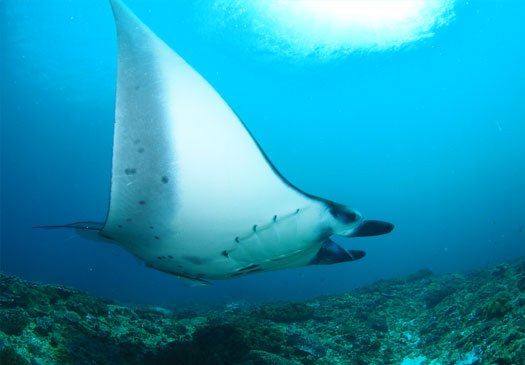
Manta Point
Dive Manta Point with Joe’s Gone Diving, one of our more popular dive sites. Manta Point is located on the South side of Nusa Penida. It’s popularity is not surprising, as the cleaning station here attracts the giant Manta Rays. They cruise around the rock in groups. This dive leaves you with nothing but awe for these beautiful creatures. An amazing experience you will not easily forget. The only drawback – encountering the mantas is not guaranteed. Joe’s Gone Diving normally combines a dive on Manta Point with Crystal Bay or one of the drift diving sites on the North of Nusa Penida or Nusa Lembongan.
Key Facts:
- Diver Level: All Levels
- Depth: 3-30 meters
- Visibility: 5-20 meters
- Distance to Dive Site: 45-60 minutes by boat from Sanur
Crystal Bay
Crystal Bay is most famous for the mola mola (sunfish). Your chance of spotting a mola mola is the highest here. Crystal Bay is a small bay on West Nusa Penida and is relatively protected. Diving takes place around a rock and besides the mola mola, the dive site offers some beautiful reef life and corals. The site is not always easily accessible. Joe’s Gone Diving dives here regularly during mola mola season. The dive trip to Crystal Bay is often combined with Manta Point.
Key Facts:
- Diver Level: Intermediate
- Depth: 3-37 meters
- Visibility: 10-30 meters
- Distance to Dive Site: 30-45 minutes by speedboat
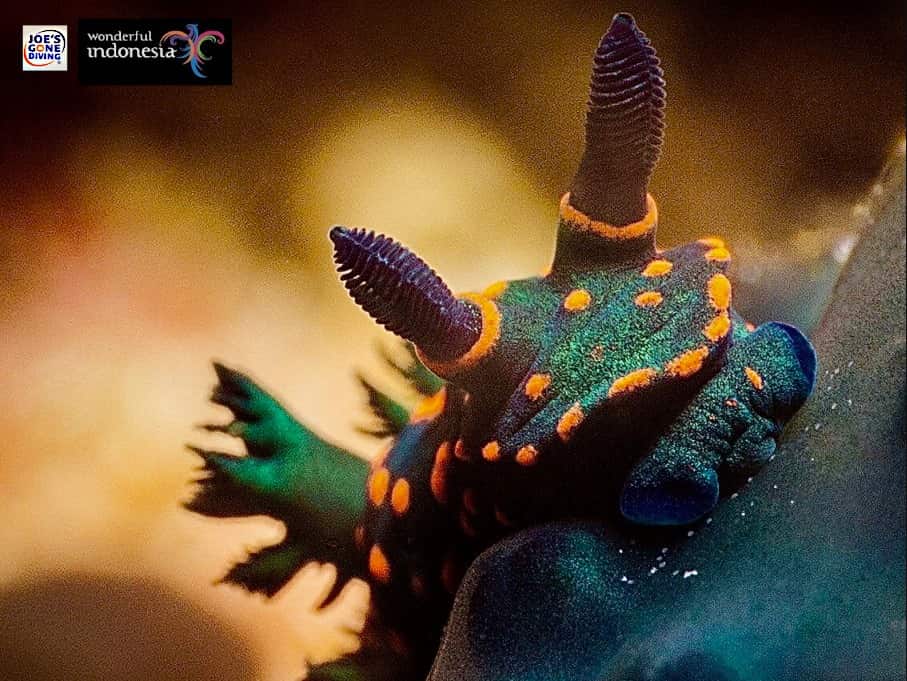
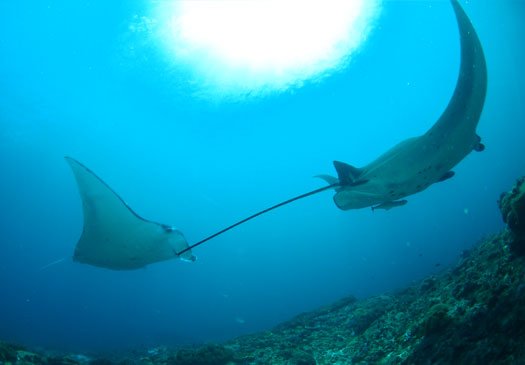
Manta Bay
Mantas can mainly be spotted at Manta Bay or Manta Point. Manta Bay consists of multiple bays and often you can already spot the mantas from the boat. The site has a sandy bottom sloping from 5 meters to 12 meters, then continuing to a depth of 30 meters. Visibility in this bay is usually about 10 – 15 meters. There are no cleaning stations here, but mantas can often be seen playing at 1 to 6 meters. The main attraction is of course mantas, but we sometimes see turtles and sharks here.
Key Facts:
- Diver Level: All Levels
- Depth: 2-12 meters
- Visibility: 10-15 meters
- Distance to Dive Site: 45-60 minutes by speedboat
Toyapakeh
Toyapakeh lies just at the entrance between Nusa Penida and Nusa Lembongan. Joe’s Gone Diving often takes more experienced divers to this dive site. As a result of the constant current through the channel, the reef is very healthy here and you can enjoy blooming coral gardens. Toyapakeh is a drift dive.
Key Facts:
- Diver Level: Intermediate – experienced
- Depth: 3-37 meters
- Visibility: 10-40 meters
- Distance to Dive Site: 45-60 minutes by speedboat
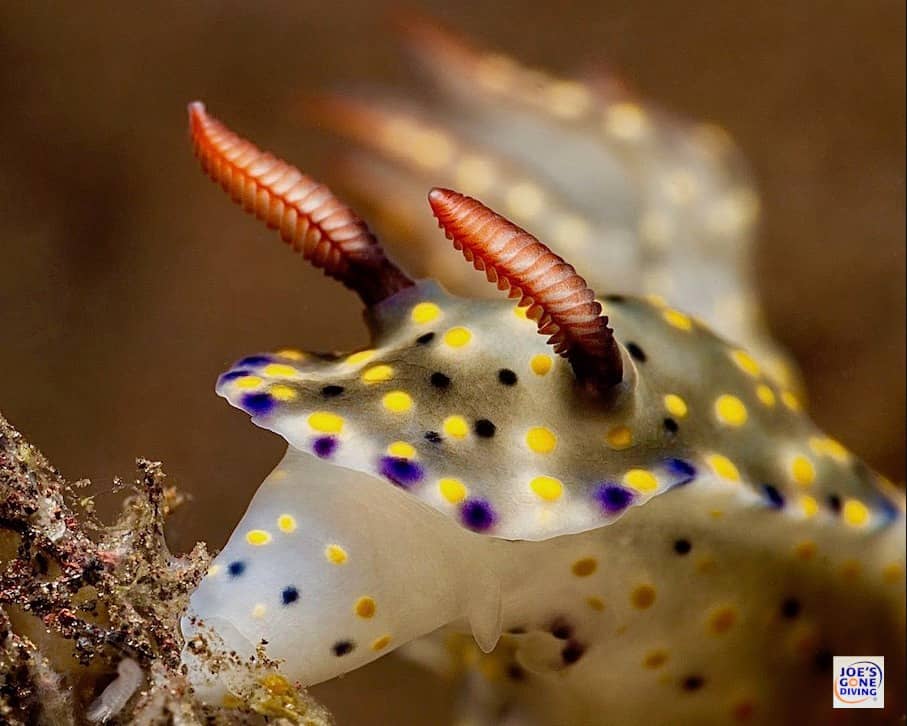

S.D.
Another dive site Joe’s Gone Diving often dives is called S.D. S.D. is named after the primary school Sekolah Dasar that lies just opposite the site on Nusa Penida island. This dive along a coral slope is usually a drift dive which can be exhilarating at times. This beautiful coral garden is home to a wide variety of fish including the large queen angelfish, large puffer fish, hump headed parrot fish and cuttlefish. And if you are lucky you might run into some white-tip reef sharks and mola molas.
Key Facts:
- Diver Level: Intermediate – experienced
- Depth: 3-40 meters
- Visibility: 10-35 meters
- Distance to Dive Site: 45-60 minutes by speedboat
Pura Ped
This dive site along Nusa Penida’s north coast is named after the temple on the shore (Pura in Indonesian). This healthy coral reef slopes down to about 50m and is home to a wide variety of fish. The rich coral cover is home to a lot of exotic fish, such as groupers, moray eels, barracudas and occasional sharks. Joe’s Gone Diving organises dive trips to Pura Ped on a regular basis.
Key Facts:
- Diver Level: Intermediate – experienced
- Depth: 3-37 meters
- Visibility: 10-30 meters
- Distance to Dive Site: 45-60 minutes by speedboat
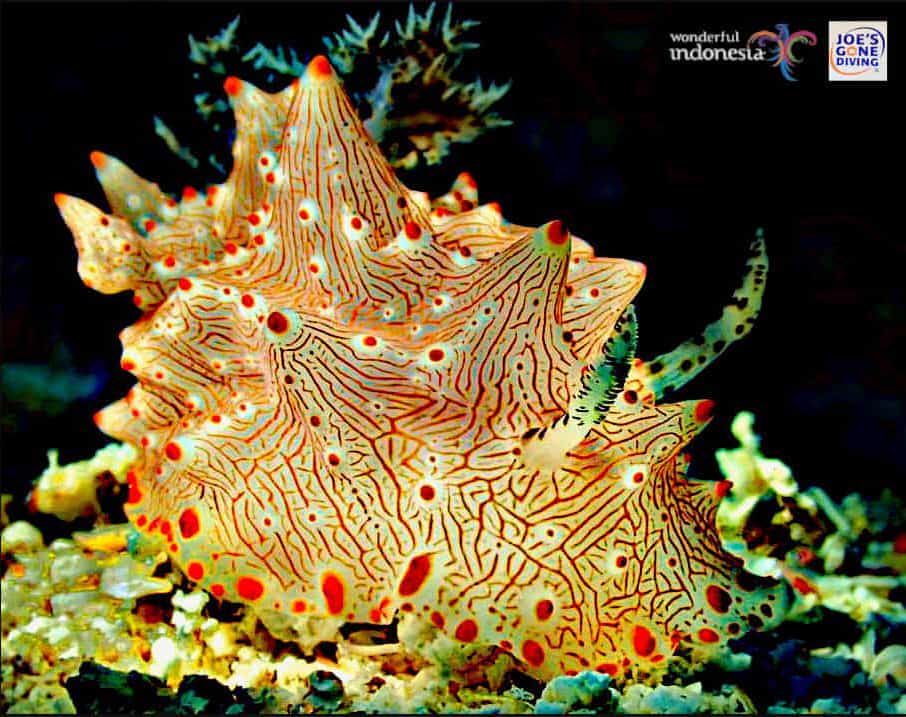
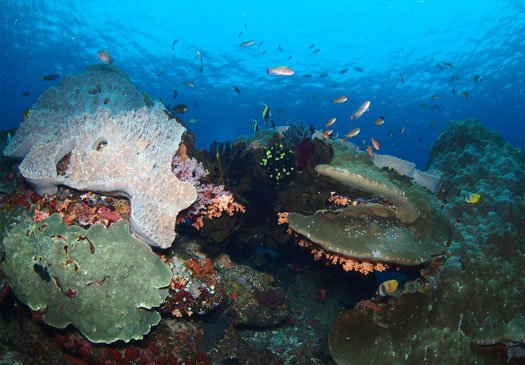
Jack Point
Jack Point, or Mangroves or Sakenan as it is often called, is located on the North east side of Nusa Lembongan. This reef is famous for its variety of reef life and is a great dive for beginners and more advanced divers alike. In the shallows it is an easy dive, however deeper it offers some great drift dives. Joe’s Gone Diving organizes regular trips to Jack Point.
Key Facts:
- Diver Level: All levels
- Depth: 5-27 meters
- Visibility: 10-20 meters
- Distance to Dive Site: 30-45 minutes by speedboat
Sental
Like S.D., Sental can be found on the North side of Nusa Penida. The topography of the sites are quite similar. This dive along a coral slope is usually a drift dive which can be exhilarating at times. This beautiful coral garden is home to a wide variety of fish including the large queen angelfish, large puffer fish, hump headed parrot fish and cuttlefish. And if you are lucky you might run into some white-tip reef sharks and mola molas. Joe’s Gone diving organises regular trips to Nusa Penida’s dive sites.
Key Facts:
- Diver Level: Intermediate – experienced
- Depth: 3-40 meters
- Visibility: 10-30 meters
- Distance to Dive Site: 45-60 minutes by speedboat
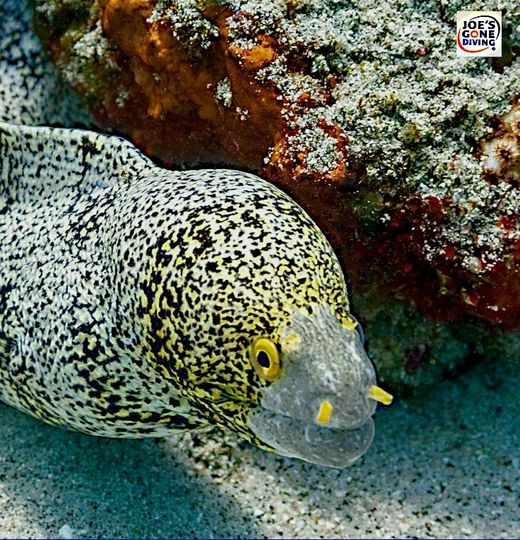
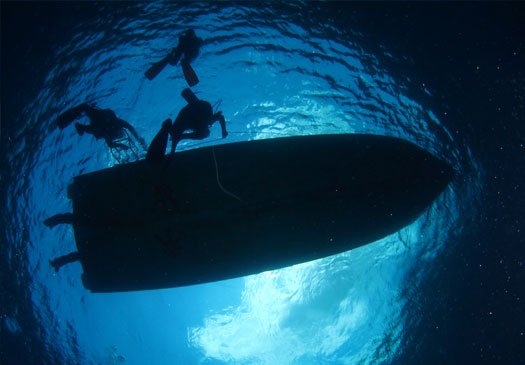
Blue Corner
Looking for the big pelagics and some advanced diving? Blue Corner is the place to be. In this dive site around Lembongan Island you will find strong currents, schools of black sting rays, bull rays, reef sharks and mola molas in season. The sloping reef tops start at about 12m before dropping into a steep wall in excess of 40m before sloping down once again. Blue Corner is not always diveable and Joe’s Gone Diving only goes there when we feel it is safe to dive.
Key Facts:
- Diver Level: Experienced
- Depth: 7-40 meters
- Visibility: 10-30 meters
- Distance to Dive Site: 30-45 minutes by speedboat
Book Now !
All Prices, Terms & Conditions can change without further notice.
For dive trips only – a minimum of two divers.
Book Now !
All Prices, Terms & Conditions can change without further notice.
For dive trips only – a minimum of two divers.
| label_en | ROUND(price_usd * (SELECT exchange_rate FROM jgd_exchangerate WHERE exchange_rate_id = '1') / 10000) * 10000 |
|---|---|
| 3 dives Nusa Penida/ Manta Point | 3,000,000 |
| Equipment Rental (full set including computer) | 0 |
| Equipment Rental per item | 0 |
| 15 Litre Tank | 150,000 |
| label_en | price_usd |
|---|---|
| 3 dives Nusa Penida/ Manta Point | 185 |
| Equipment Rental (full set including computer) | 0 |
| Equipment Rental per item | 0 |
| 15 Litre Tank | 9 |
| label_en | price_usd * (SELECT exchange_rate FROM jgd_exchangerate WHERE exchange_rate_id = '2') |
|---|---|
| 3 dives Nusa Penida/ Manta Point | 166.50 |
| Equipment Rental (full set including computer) | 0.00 |
| Equipment Rental per item | 0.00 |
| 15 Litre Tank | 8.10 |
Please note all payments within Indonesia will have to be charged in Indonesian Rupiahs. Therefore the USD and EUR prices are just as an indication. NB. Prices can change without further notice. Our terms and conditions can be found here.
If you have any questions, please contact us directly at info@joesgonediving.com
